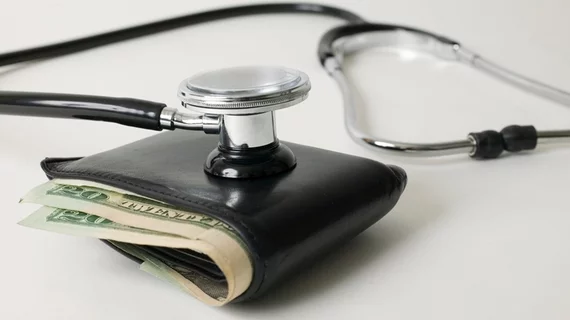CMS speeds up radiologist payment to calm cash flow concerns during pandemic
The Centers for Medicare and Medicaid Services announced Saturday that it’s accelerating payment to radiologists and other physicians to help lessen financial hardship during the COVID-19 pandemic.
In its announcement, officials noted that providers have experienced “significant disruption” in recent weeks, including delayed nonurgent imaging, staffers stranded at home to care for children, and disrupted billing cycles. CMS said it wants to get funding to physicians faster so they can focus on patient care.
“With our nation’s healthcare providers on the front lines in the fight against COVID-19, dollars and cents shouldn’t be adding to their worries,” CMS Administrator Seema Verma said in a statement. “Unfortunately, the major disruptions to the healthcare system caused by COVID-19 are a significant financial burden on providers. Today’s action will ensure that they have the resources they need to maintain their all-important focus on patient care during the pandemic.”
The advanced and accelerated payment offering applies to all docs in Medicare Part A and B, and is part of the CARES Act signed by the president Friday. To be eligible, radiologists need to have billed a Medicare claim in the last 180 days, and cannot be in bankruptcy, nor under review by CMS for misusing the federal payment program. The agency said it’s accepting physicians’ requests immediately and expects to issue payment within seven calendar days of receiving each submission.
In a corresponding fact sheet, CMS said the accelerated payment program will last through the duration of the COVID-19 public health emergency.

